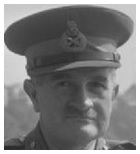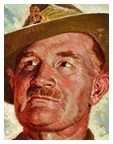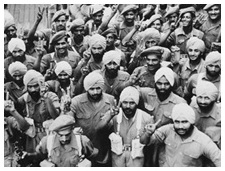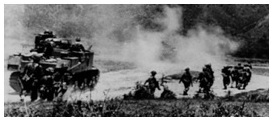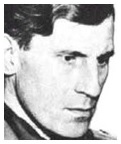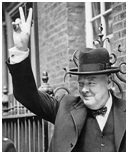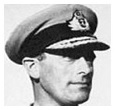|
 |
|
 |
William (Bill) Slim Leadership
William (Bill) Slim (1891-1970)
Leader of the British army in Burma (pictured right) and considered by many historians to be Britain’s best general in World War Two, even better than Bernard Montgomery. He saved the army in a brilliant 1,100 mile retreat to India in 1942, revitalized it and defeated the Japanese, preventing them from capturing India.
Why was he a great leader?
1. Morale booster His troops loved him because, as one of them put it, he had “the head of a general with the heart of a private soldier”. He was extremely considerate and convinced them that he and his senior officers would do
anything to get what they wanted. So they trusted him and believed everything he said. Slim (pictured right in 1945):
His pioneering treatment of tropical diseases (like malaria) made his army the healthiest in the world.
2. Unity of purpose He united everybody in his army by:
So he always:
His unification of his one million strong army was even more remarkable because of its many different nationalities including Indians (pictured right) and Gurkhas (Nepalese) as well as Britons (only 12% of the total)
3. Training and tactics In battle he emphasized:
He clearly communicated these principles to his men and trained them
to carry them out. He believed that hard, realistic training was vital to remove their fear of the Japanese who had been considered invincible before he took over. Gurkha troops and tanks are pictured right advancing at the crucial Battle of Imphal (1944) in North Eastern India.
4. Character and integrity He was:
a) a man of great integrity (“the quality which makes people trust you”, he said).
b) very humble (helped by his relatively poor upbringing) He was the only British general in World War Two who didn’t go to private school.
c) highly empathetic (understanding his men and prepared to do anything for them).
d) calm under pressure (never cross or edgy).
e) courageous (a virtue he valued above all others).
f) mentally strong and tenacious (he never gave up).
5. Communication He wasn’t a great orator, but the power of his communication came from:
He talked to his men like a loving uncle, so they affectionately called him “Uncle Bill”. He thought that you must believe in any communication as well as know about it.
6. Morality, professionalism and learning He was a highly professional soldier, expert in:
Slim:
He gained fighting experience in the First World War, and in 1940 his disastrous defeat by the Italians in the Sudan taught him the virtue of attack. He always took full responsibility for his own and other people’s mistakes and learned from them. 7. Recruitment, empowerment and involvement He appointed great officers including Orde Wingate (pictured right), an expert in guerilla warfare, Slim gave his troops
This gave them the ability to respond quickly to changing circumstances or new information without reference to their superiors (including Slim). His advice to them was:
8. Ruthlessness and determination Slim was:
a) tough when necessary (e.g. firing incompetent officers)
b) incredibly determined (particularly as he was under-valued by Winston Churchill, pictured right in 1940).
9. Innovation He was always prepared to challenge existing ideas and convention. He encouraged his men (individually and in teams) to do the same, so that innovative solutions were found (e.g. using jute for parachutes).
10. Support He got huge support from not only his men but also his beloved wife, Eileen, and his boss, Earl Mountbatten (pictured right in 1944).
Key quotes on leadership Leadership is of the spirit...management is of the mind. The qualities that distinguish a leader from other men are courage, will power, initiative and knowledge. If you are any good, you know your men better than their mothers do and you love them just as much.
Key quotes on management There are no bad soldiers, just bad officers. The most important thing about a commander is his effect on morale.
Key quote on war There is only one principle of war...Hit the other fellow, as quickly as you can, as hard as you can, where it hurts him most, when he ain’t lookin’.
Key quote on decision making When you cannot make up your mind which of two evenly balanced courses of action you should take, choose the bolder. |
|
|
||
|
|
|
||
|
||
| Copyright © wisdomtowin.com All Rights Reserved | ||
|

